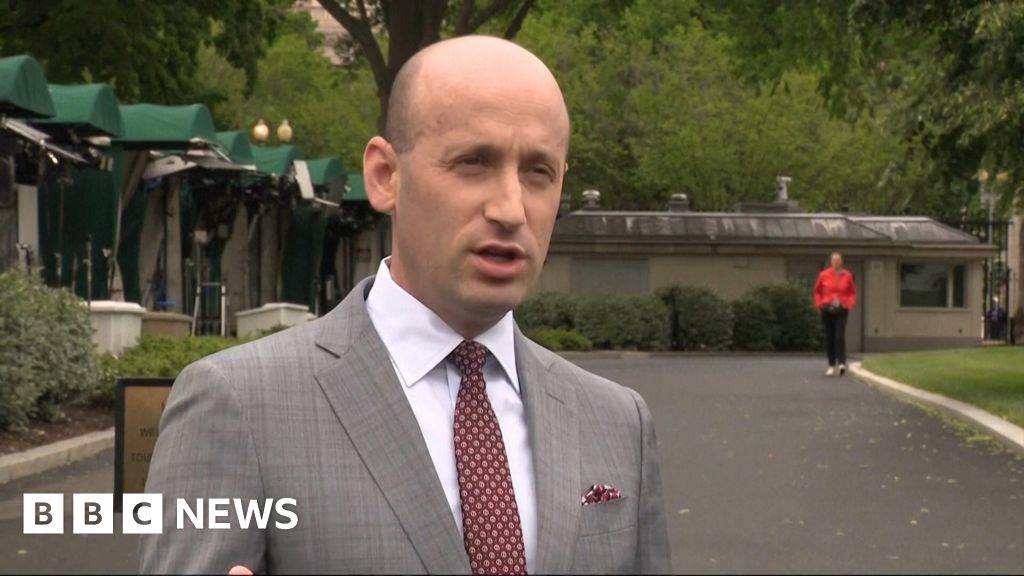ARTICLE AD BOX
By Helen Briggs
Science and environment correspondent
image sourceProf ShouzhouZhangFairylakeBC
image captionHalf of all magnolia species are threatened with extinction in the wildAt least 30% of the world's tree species face extinction in the wild, according to a new assessment.
They range from well-known oaks and magnolias to tropical timber trees.
Experts say 17,500 tree species are at risk - twice the number of threatened mammals, birds, amphibians and reptiles combined.
Conservation groups are calling for urgent protection efforts amid threats such as deforestation, logging and climate change.
"We have nearly 60,000 tree species on the planet, and for the first time we now know which of these species are in need of conservation action, what are the greatest threats to them and where they are," said Dr Malin Rivers of the charity Botanic Gardens Conservation International in Kew, London.
image sourceDavid Bartholomew
image captionThe Global Tree Assessment, by 500 tree experts and 61 institutions, brings together data on the conservation status of all treesFor a healthy world, we need tree species diversity, added Sara Oldfield, co-chair of the Global Tree Specialist Group of the International Union for the Conservation of Nature.
"Each tree species has a unique ecological role to play," she said. "With 30% of the world's tree species threatened with extinction, we need to urgently scale-up conservation action."
The report, State of the World's Trees, found that at least 30% of the 60,000 known tree species face extinction.
Some 142 species have already vanished from the wild, while 442 are on the very edge of extinction, with fewer than 50 individual trees remaining.
The biggest threats to trees globally are forest clearance for crops (impacting 29% of species), logging (27%), clearance for livestock grazing or farming (14%), clearance for development (13%) and fire (13%).
image sourceMalin Rivers
image captionOne-in-five tree species are used by humans for food, fuel, timber, medicines and moreClimate change, extreme weather and sea level rise are growing threats to trees. But the authors say with conservation action, there is hope for the future.
"The report gives us that road map to mobilise the wider conservation community and other key players to ensure that tree conservation is at the forefront of the conservation agenda," said Dr Rivers.
The experts are calling for a number of actions, including:
- Preserving existing forests and expanding protected areas (currently at least 64% of all tree species can be found in at least one protected area)
- Keeping threatened species in botanic gardens or seed banks in the hope they can one day be returned to the wild (currently about 30% of all trees are backed up in this way)
- Providing education to ensure reforestation and tree planting schemes are carried out scientifically, with the right tree in the right place, including rare and threatened species
- Increasing funding for tree conservation.
image sourceDavid Bartholomew
image captionTropical forests are facing threats from climate change and extreme weatherScientists estimate that one million animals and plant species are threatened with extinction.
Over the past 300 years, global forest area has decreased by about 40% and 29 countries have lost more than 90% of their forest cover.
Research shows that seven main commodities drive more than half of deforestation worldwide.
Trees at particular risk of extinction include:
- Large tropical trees known as dipterocarps that are being lost due to the expansion of palm oil plantations
- Oak trees lost to farming and development in parts of Mexico, Chile and Argentina
- Ebony and rosewood trees being felled for timber in Madagascar
- Magnolia trees at threat from unsustainable plant collecting
- Trees such as ash that are dying from pests and diseases in the UK and North America

 3 years ago
121
3 years ago
121








 English (US) ·
English (US) ·